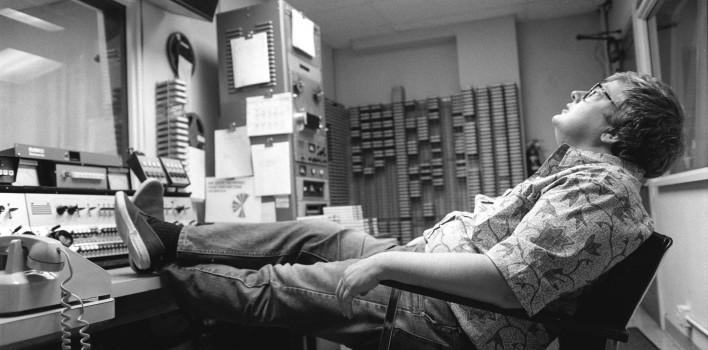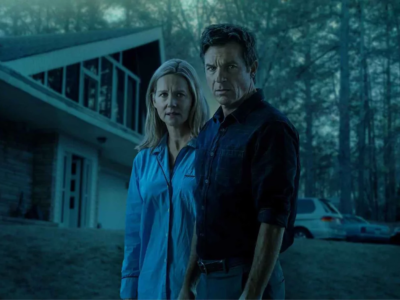Netflix Your Weekend | Life Itself
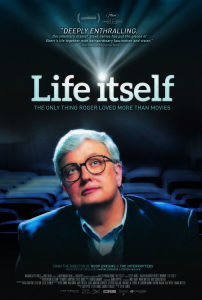 Growing up in Milwaukee, I cannot recall exactly how I managed to get my hands on Roger Ebert’s reviews. Was it republished in the Milwaukee Journal Sentinel? Did my grandma have a subscription to the Chicago Sun-Times? I honestly cannot remember, but I remember one of my joys as a kid and teenager was reading Ebert’s reviews and expecting to get the definitive low-down on a movie I was anticipating from the foremost film critic in the world. And he was only writing an hour and fifteen minutes away in Chicago!
Growing up in Milwaukee, I cannot recall exactly how I managed to get my hands on Roger Ebert’s reviews. Was it republished in the Milwaukee Journal Sentinel? Did my grandma have a subscription to the Chicago Sun-Times? I honestly cannot remember, but I remember one of my joys as a kid and teenager was reading Ebert’s reviews and expecting to get the definitive low-down on a movie I was anticipating from the foremost film critic in the world. And he was only writing an hour and fifteen minutes away in Chicago!
Ebert was a once-in-a-lifetime writer who was able to dance in poetic words and incredibly terse, yet profound sentences that could capture the real essence of a movie. What always came out, regardless of whether it was his greatest writing or not, was that Ebert had a passion and love for the movies. He truly believed that humanity’s greatest fears, hopes, failings, successes, passions, and sins were boxed within the four sides of the big screen. He called them “machines that generate empathy”, and Ebert was a master at distilling that empathy into his reviews and writings.
It became a tall task, then, for longtime friend of Ebert’s and famous documentation Steve James, who made Ebert’s favorite movie of the 90’s, Hoop Dreams, to make a movie that could somehow capture the passion and empathy of Ebert as he wound down his life here on earth. That movie ended up being 2014’s Life Itself. Not intended to necessarily capture Ebert’s last days, it was supposed to be the film version of Ebert’s 2012 autobiography of the same name, the movie shows Ebert’s stays in the hospital for cancer, interspersed with interviews with friends like Martin Scorsese, Werner Herzog, and Errol Morris, along with his wife, Chaz Ebert, and proteges and people influenced by him including director Ava DuVernay (Selma) and Ramin Bahrani (Goodbye Solo, Man Push Cart). It also looks at his relationship with longtime collaborator and constant thorn in his side, Gene Siskel.
It is this throwback to the interactions and rivalrous nature of Siskel and Ebert’s relationship that is by far the most fun and entertaining portions of this movie. To get a small glimpse into the fiery passion both men had for movies and how their on-screen duels were not that far from the reality of off-screen life was both amusing and pleasant. You get a sense, as James uses footage of before and between takes, that they had a mutual dislike but equally strong mutual respect that drove their TV show to be the most popular movie TV show out there.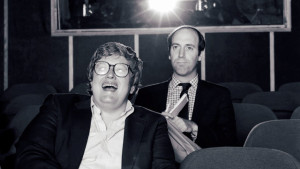
Aside from his on-screen and critical successes, Life Itself is really Ebert’s story through Ebert’s eyes told by someone else. Not only is that literally the case with a performance by Stephen Stanton voicing the narration as Roget Ebert (he does a great job) but director Steve James’ voice and the voice of Ebert’s closest friends, family, and proteges paint in the pictures Roger had left in his autobiography. There are some really touching stories of the life he lived and the legacy and impact he left on the people around him. From finding love later in life with his wife Chaz, to unknowingly reinvigorating not only Martin Scorsese’s career, but his life, Ebert did more with his success than just revel in it. He used it to build lasting and meaningful relationships that transcended the movie making world (something he would catch flak for).
However, one cannot deny, and the movie does not shy from it, that Roger Ebert play an integral part in the populism of movie criticism and the enjoyment of film. Because he was someone who rose from humble beginnings, the son of an electrician, Ebert was, at his core, a guy who loved movies and loved to talk about them. He didn’t become a cultural force because his opinion mattered more than everyone else. He wrote and talked and facilitated conversation because he saw these “machines that generate empathy” as a window into “the most essential quality” of life. It just happens that this man wrote and expressed those things better than anyone else and so perfectly captured that populist spirit that he became bigger than life itself (to borrow an observation from Mikey’s review on Letterboxd).
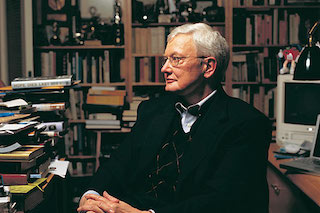 Ebert always said, “when a movie is really working, we become that character.” I felt that for two hours I became Roger Ebert and experienced the life he had lived. For that, Steve James is to be commended for making one more “machine of empathy” that connects our lives to one of movies’ greatest icons.
Ebert always said, “when a movie is really working, we become that character.” I felt that for two hours I became Roger Ebert and experienced the life he had lived. For that, Steve James is to be commended for making one more “machine of empathy” that connects our lives to one of movies’ greatest icons.


